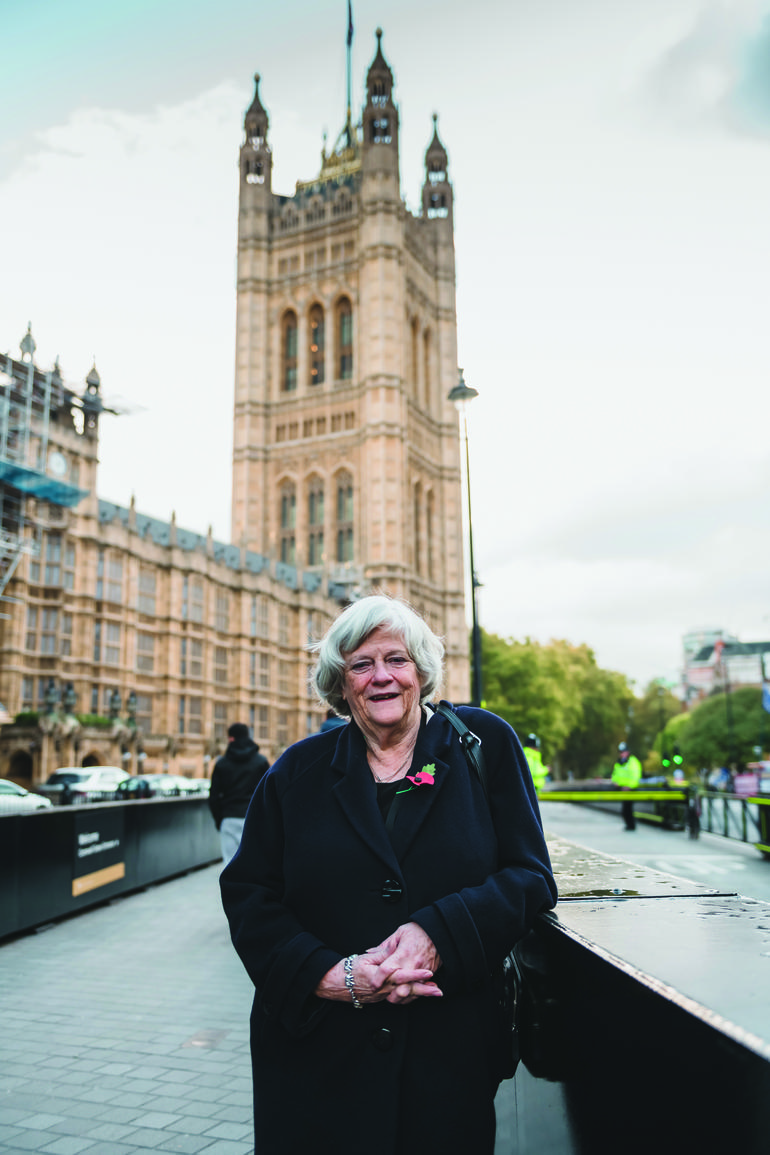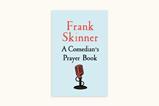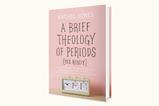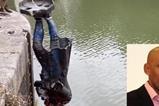Don’t blame politicians for the spiritual state of the country; it’s the job of Christians to share the good news, says the Brexit Party MEP
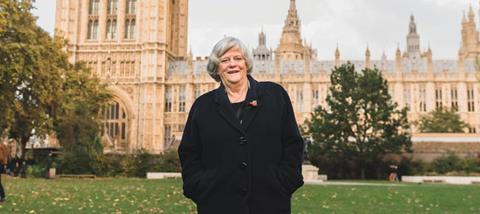
When Ann Widdecombe spoke to this magazine ten years ago, she was approaching the end of her career as an MP, looking forward to retirement on the south coast, and hoping a peerage would be on the horizon. She talked about her lifelong allegiance to the Conservative Party and assured us she would never go on Big Brother “and certainly not Strictly Come Dancing”.
Well, life is full of surprises and a lot has changed over the past decade. She’s no longer retired, and after 55 years in the party, she isn’t a Conservative either, having moved to Nigel Farage’s Brexit Party. Despite vowing never to go on Big Brother or Strictly, she’s since thrown herself into both!
The 72-year-old politician grew up in an evangelical Anglican family, but was sent to a Catholic convent school. Being a “religious minority” in “the strictest school in all of Bath” meant that Widdecombe quickly learned to passionately defend her Anglican beliefs. She remembers giving her life to God aged eight at a meeting in Tunbridge Wells, but she also thinks faith was always there. “I know the evangelical position is there is a given moment of conversion, but I think Christianity can be something that develops...it’s far more subtle.”
Years later, she experienced a “slow erosion of faith” that she can’t quite explain and became agnostic. But she continued to watch the Anglican Church “from afar” and was troubled by how it “always preferred compromise over Creed and seemed to go with anything that was fashionable. The Pope on the other hand took the view that there was right and there was wrong, and it was not determined by popularity – Christ didn’t put the Sermon on the Mount to the vote; that wasn’t what determined it.” Impressed by this, she converted to Catholicism in 1993, and left her doubts behind.
When it comes to her views on abortion, same-sex marriage and the EU, Widdecombe is as staunch as she has ever been. Her typically no-nonsense approach was exemplified when I asked her how a person might get to heaven: “You get to heaven through Christ. I mean, I would have thought that was perfectly obvious through the sacrifice at Calvary; I don’t know any other way of getting there.”
But underneath her bold statements (whether political or religious) is a woman who doesn’t take herself too seriously, and is even up for being dragged across the dance floor by Anton du Beke.
Do you think God wanted you to be in politics?
Well, I hope he did, because I’ve been there a very long time.
Why did you want to be an MP?
I was very politically engaged; I wanted to fight socialism which was still rampant then – rampant! I also wanted to solve problems which look insoluble; so, you might say: “Oh, Northern Ireland” or “the pension system”, or these days you might say: “Brexit”. But also this happens at a very individual level with constituents who come to you with problems that nobody else is sorting out, and you get that opportunity.
Are there days when you look at BBC Parliament and say: “Oh, I miss those corridors?”
You are joking? I look at BBC Parliament now and I think: “Ohhhhh”; I’ve come out of retirement because everything is so bad at Westminster – because Parliament is such a shambles. Far from thinking: “Oh I do wish I was there”, what I’m thinking is: “I’ve got to be there.”
How long was that gap where you thought you were retired?
Nine years. I retired in 2010. If you had said to me in February, probably even March, this year: “Ann, you’re going to re-enter politics; you’re going to become a member of the European Parliament and you’re going to stand again for Westminster”, I would have said to you: “Lie down and have an aspirin, dear. It’s not going to happen.” But the frustration with the way Britain became such a laughing stock, and the utter shambles in Parliament, and the uselessness of Theresa May all finally came to a head and I thought: “Right, I’ve got to go back in.” I was on a cruise at the time, of the Norwegian Fjords, and as I put it: “I stood beside a fjord and I crossed a Rubicon”, because it was standing beside that fjord I thought: “Right, do it!” and I rang up Nigel Farage.”
How hard was it to realign your political identity?
Very. There’s no doubt about that at all – very hard. Of course, I had done it once by leaving Anglicanism for Catholicism, so I knew what crossing a big divide actually involved. I’m not comparing the importance of it, but the experience of it. I spent 55 years in the Conservative Party, for heaven’s sake – 55 years! I had a lot of friends who I knew were going to be disappointed. I knew that a lot of the people who’d spent night after night thumping the streets for me, putting literature through doors and canvassing in the rain would probably feel let down. I knew all of that, but I also knew that it was the right thing to do, and the thing that really surprised me was the number of Conservatives, including MPs and councillors, who came up to me and said: “Well done.”
Would you ever go back to the party?
I don’t anticipate doing so. I’m a member of the Brexit Party and so long as there is a Brexit Party and it’s got a function, I can’t see myself leaving it.
Would you like to be a peer?
Well, I was disappointed when I left the House of Commons and I wasn’t made a Member of the Lords, and, if the truth be known, I had really expected that I would be because all the time, the service, the qualifications and everything else were there. Indeed, I don’t know anybody else in a similar position to me who didn’t get the Lords, so I rather assumed it would happen; it didn’t. I was somewhat disappointed, but you know, I just moved on. I had other things to do – I suddenly had a showbiz career which I wasn’t anticipating!
What’s your response to those who say your views on abortion or same-sex marriage are outdated?
I keep saying abortion is about life, it’s not a view of the world, it’s not a political principle, it’s about life itself, it’s about human life – taking it. I don’t think it can possibly ever be outdated to want to look after human life and particularly weak, vulnerable and completely undefended human life, which is what the child in the womb is.
Same-sex marriage is a completely different issue. I do believe very strongly in the Church’s teaching that all sex, not just homosexual sex, all sex outside marriage as defined by the Church is wrong. I keep saying that to people: “Why do you think I’m picking on homosexuals?” Half my friends have actually lived in what we would call ‘sin’ before marrying, half the country doesn’t even bother getting married. Now, you don’t say I’m anti-them, you don’t say I’m picking on them. It is a real nonsense just to pick one very small group and to say: “Oh, it’s all about them”– it isn’t, it’s about a much broader teaching.
In terms of the spiritual state of the country – how do you think we solve that?
Knowledge of Christianity must be at an all-time low. There are people who don’t know what happened on Good Friday. Whereas, you think when we were growing up, every child did scripture at school – it didn’t matter whether you were a believer or not, you learned scripture. But that is the fault of Christians. Don’t look to the law to sort that, don’t look to the government to sort that – that is the duty of Christians. We’re supposed to spread the good news; nobody else has got that responsibility, we have. If we’re so intimidated that we don’t spread the good news, well, that’s our fault.
Last time you spoke to us you said: “I’d never do Big Brother and I’ve come under pressure occasionally to do so. I’d never do I’m a Celebrity...Get Me Out of Here! and I’d certainly never do Strictly Come Dancing”...that’s two of the three, by my count.
Yes, it is, and it won’t be the third because I’ve got a terrible height phobia. Big Brother I really never would have done. My agent rang me up and he said: “Big Brother”. And I said: “Don’t want to hear any more.” He said: “Just listen this time” and then he explained that they were celebrating 100 years of women’s suffrage. At that time they were wanting to call it Big Sister but the channel wouldn’t have it, but that’s what they wanted...They wanted more serious people on it, like me and Rachel Johnson, so that they could have some proper debates around women. This was his clinching argument, he said: “Ann, you’re not in the jungle, you’re in Elstree, you can walk out of the door.” I really thought (and apparently so did the entire production team, as I learned later) I’d walk out in the first week. I did not think I would last, but I did, and then my competitive instincts kicked in and I desperately wanted to survive and I became the runner-up.
Strictly was really very different. I’d always just thought: “Well, I’m totally incapable of doing Strictly and there are all these elegant mortals cavorting around a dance floor, not me”, and I said no to them. They came to me every year, and I do mean every year without fail from 2004 until 2009, and I said: “No, no, no, just go away – not doing it.” Then two things happened. The first was I saw John Sergeant doing it. I thought: “Oh, you can do this without being able to dance, it really is possible.” The second and far more compelling factor was that I’d retired. Suddenly I no longer owed anybody any duty of time or dignity and I thought: “I can do it this year.” There isn’t an elimination the first week; I thought I would probably be eliminated in the second or third week – I really thought that. Didn’t quite work out that way, either.
What would you like to see change in Britain?
First of all I would like to see more free speech. One of the most regrettable trends over the last couple of decades – this has been going on along time, it’s been very gradual – is the erosion of free speech.
The suppression of free speech hasn’t been the fault of being in the EU; it’s been a whole series of laws passed in this country and then widely, I believe, misinterpreted. I would very much like free speech to come back, and of course that will help Christians because, at the moment, you can be disciplined at work simply for saying: “God bless you”. You can be sacked at work for refusing to do things that go against your conscience, even though when you joined that particular job there was nothing that would have obliged you to do so.
Why do you think it has come to this?
It has come about because people are very, very concerned that other people are never offended. Well, sorry, nobody has a right to go through this life expecting never to be hurt, never to be insulted, never to be offended– look at the life of Christ. Look at the average politician’s life in this country for that matter; to go from the sublime to the ridiculous.
There’s also another deeply illiberal agenda. There’s a view that’s ‘right’ and if you differ from that view, you’re in dire trouble. The number of people who say to me now: “Oh, but you can’t say that these days”, and I think: “Well you darn well ought to be able to say that these days.”
I always point to my own childhood. I was born two years after the war and people had lost lives and limbs and family and houses to the Nazis. Yet Oswald Mosley, Colin Jordan – they were allowed to hold their foul rallies and the police only moved in if there was disorder. They were allowed to have their rallies because we believed in free speech. Then, as I was growing up, we had the Cold War – big enemy: the communists. We tend to forget it now but there were weapons lined up right along the borders of the Warsaw Pact countries pointing straight at us. Yet you could stand for Parliament as a communist in this country – you wouldn’t get in, but you could stand. You could stand on street corners and sell the Morning Star, you could proclaim yourself to be a communist, you could be a communist trade unionist and say that you were –because we believed in free speech.
You think of the number of people who were hurt by both those things; people who were desperately hurt because they’d spent six years fighting something which now suddenly appeard on their streets or in the hall down the road. But we valued free speech more. But I also think if you don’t allow free expression, you drive things underground, and where you drive something dangerous underground, it can fester.
How do we defend free speech?
I actually think now the heavy hand of the law is probably required. The [former] education minister Jo Johnson did actually ensure that universities had to get away from no-platforming and had to guarantee freedom of speech. I think we need to do the same thing in the country as a whole. Now, normally I don’t like legislation but I think we’ve come to such a pass with this that probably you do need the intervention of law to get free speech back again. Once it is back and once people realise it hasn’t got two horns and a tail – because you can defeat what is wrong – then I think people will value it.
To hear the full interview listen to Premier Christian Radio at 4pm on Saturday 14 December or download The Profile podcast premierchristianradio.com/theprofile
All photos © Alex Baker














